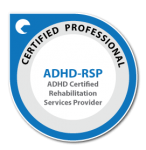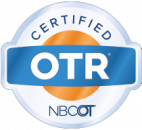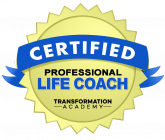

I’ve been there – hands balled in a fist, making demands through gritted teeth, losing my cool, resorting to threats I wasn’t sure I wanted to follow through with. I’ve cried in the bathroom alone, wondering why my kid can’t just “get it” like everyone else does. I’ve sat in meetings with teachers, school counselors, the assistant principal, advocating and apologizing for my son.
This was years ago, but the memory is refreshed every time I talk to a parent who is going through this right now. I have since learned how to help my clients in a way that makes sense for them, but I still encounter one obstacle: parents who have trouble getting their child “on board” with getting help for their ADHD.
In this blog, I hope to offer some advice for specific things that you can say to your son or daughter that reflect that seeking help does not indicate that they are deficient in some way, but that you care about them and want to give them the best tools possible to make their challenges less frustrating. I work with kids and teens to empower them to help themselves, and that starts with their parents.
I recommend that any conversation with your child about ADHD, no matter how young, begin with framing “the issues” in a way that show that there is always room to learn, grow, and change. A fixed mindset puts kids into hole from which there is no escape. The same goes for conversations you have about your child. This may sound like any of the following:
Banish phrases like these from your vocabulary, even if you are having a hard time currently believing them. The fact is, everyone is capable of learning and growing throughout their lives. The brain is malleable and adaptable. Every conversation, experience, book read, show watched, game played, class attended and sport played has an effect on the brain. Every single one! The question is, how can we consistently surround our kids with a life that provides enriching growth opportunities while allowing for learning through trial and error without making devastating mistakes? Parenting ADHD with empathy is not being a helicopter parent or a snowplow parent, but it also not tough love/ you must fail and hit rock bottom. It is somewhere in the middle.
Empowerment comes from education. The more we know about a subject, especially when it comes to one’s own health and well-being, the more comfortable we are with self-advocating. Some parents have asked me if telling a young child that they have ADHD will make them feel different, bad, or even inclined to use it as an excuse for poor grades or behavior. Of course, you know your child better than anyone, but as a general rule, no. In fact, the opposite may happen. How? Here are a few ways to put what may be a confusing and long explanation into simple terms:
I’ve taken you to the doctor and you’ve had some extra testing at school, and you may be wondering why. I (or we) have noticed that you are struggling with (organization, your emotions, staying on top of school work – insert the lagging skill or skills here) and we want to figure out why. The reason is that you have something called ADHD. It means that your brain is wired in a different way, so you think and learn differently than some of your friends. Once we understand how you learn and express yourself, we can figure out ways to make everyday tasks at school and home easier.
You can use the Honda vs. Ferrari analogy here, or their vehicle of choice, comparing a typical every day engine with a fancy fast engine. Alternatively, you can use an animal analogy (dog vs. cheetah) or anything that makes sense to your child.
I use some version of this when I am explaining what I do to reluctant kids. I use phrases like:
For older kids, you can briefly discuss the neurotransmitter Dopamine, and how the brain needs more of it in ADHD. Dopamine is responsible for pleasure, immediate gratification and the good feelings we experience that come with success. Our brains “seek” Dopamine by sometimes saying or doing things that give us a thrill, which is rewarded with that chemical. It explains why sitting still for long hours in school is so difficult, and why they feel wiggly and fidgety. It’s also why many kids with ADHD are so drawn to video games, and they are able to “hyperfocus” for hours on those pleasurable activities that are constantly rewarding us. ADHD is not a deficit of attention all the time – only when the tasks are boring, too challenging, or not providing a fast enough payoff.
Without becoming dismissive or patronizing, we want to offer information about ADHD but not make it the center of their world. Some parents have told me that they taught their child about ADHD, and the child spends all day blaming ADHD from everything to not wanting to do homework, to yelling at a sibling, to not being able to stop playing video games when asked. This is the opposite of empowerment!
The best way to explain this is that everyone has challenges, some can be seen and some are hidden. Some are easier to deal with than others. It is all part of the human experience. Point out that Grandpa may need a cane, Dad takes a medication, Mom needs glasses, or a cousin has a math tutor. Knowing about challenges gives us the information to be able to do something about them, rather than use them as an excuse.
Many kids with ADHD eventually grow up to be adults who find the “superpower” in ADHD that benefits them in some way. Whether that is hyperfocus, creativity, being a great and caring friend, or being really good at one specific thing, let your child know that even superheroes have challenges.
To demonstrate parenting ADHD with empathy, you can ask your child how he or she feels about some of the challenges they face, then point out some good points to them. If they feel there is nothing good, all you have to do is listen and show that you “get” it. And that is a perfect opportunity to introduce how to help.
Involving your child in intervention steps can go a long way toward getting them on board. When kids, especially older kids and teens, feel that their parents are making all of their decisions without any input, they feel like the parents are doing it for themselves (even if those decisions do appear to be in the child’s best interest). I always tell parents that kids are more likely to get on board with changes when it is a whole family decision.
Any interventions are going to be made with the express purpose of helping your child in some way. Interventions fall into 3 general categories: environmental modifications, skill building, and parent education.
Environmental modifications include things like accommodations at school such as more time for tests or to turn in assignments, preferential seating, and movement breaks. At home, this could be creating a homework corner or nook that maximizes efficiency and attention, labeling play room and bedroom storage bins for easier organization, and listing the steps of morning and nighttime routines. Modifications designed to meet attention and sensory needs can lead to easy “wins” in the first few weeks of addressing ADHD. Any modifications made to a child’s environment must be with their input, because it is their environment that we are trying to manipulate to affect change. If being moved to the front of the classroom does not increase focus, but instead causes major anxiety or increased fidgeting, this child may actually do better in the far corner, where he can stand up and move around without drawing attention to himself. If creating a homework corner in a child’s bedroom causes them to close the door and spend hours playing with legos or their computer instead of actually doing homework, a more central location like the kitchen may make more sense. Modifications could also take some trial and error to figure out what works best, as something could seem like a great idea, but not work the way everyone imagined.
Skill building involves strengthening executive functioning weaknesses as well as using preferred learning styles to improve overall study habits and academic performance. A therapist, ADHD coach and/or teacher works with a child to create individualized systems designed for a specific challenge or weak area that are then practiced and refined over a period of time until they become habits. For example, I help many of my clients learn the skills of organization, time management, and planning in relation to developing a system for knowing what homework and assignments are coming up, and getting them done and turned in on time. I help my clients learn how to focus by recognizing what their obstacles are to sustaining attention, then working to overcome them. I teach my clients to use self-regulation techniques to control their emotions and impulses. I brainstorm with my clients, then practice better ways for them to learn academic material with less frustration. Skill-building is much more than tutoring and is never a one-size-fits all solution. It is about giving kids and teens the tools that they can specifically use to help themselves.
Parent education is the third piece of child-centered intervention. Parents who use an authoritarian-democratic style and work with their children proactively, as opposed to reactively, will be able to support their child lovingly and with empathy through their ADHD challenges. I have written about parenting styles that work, and don’t work, with kids with ADHD Part 1 and Part 2. In both of those blogs, I also discuss collaborative problem solving techniques that are designed to diffuse tense situations and address the problems and/or lagging skills the child has. Parenting ADHD with empathy means using these methods with regular practice and consistency. Having a parent coach work through your biggest challenges with the family is invaluable toward long-term skill building and family peace. I incorporate parent education into all of my one on one sessions.
You’ll notice that I have not mentioned medication at all yet. I always say that I am neither pro-medication, nor am I anti-medication. I am pro-do what works for your family. I have had clients who have only been able to focus and function with ADHD meds, and I’ve had clients who have never had a single pill. The important things to keep in mind regarding medication:
Until your child is a legal adult, parents are responsible for medical decisions, and this is one that your child may resist or not be in agreement with you or providers on. Listen to his or her concerns before making a decision. Trust that you will do what is right for your family, but that you always have options and can figure it all out as you go along.
To summarize, parenting ADHD with empathy begins with a growth mindset and teaching your child about ADHD, and being able to openly show understanding of their unique challenges. Once you have covered each of these steps, you will then be able to develop a child-centered plan utilizing all three intervention methods.
For more information about how your family can work with me one on one, please fill out this form.




Copyright 2024 © Kids Empowered 4 Life. All rights Reserved.
All information on the Website is presented as informational only and is not a replacement for therapy assessment, diagnosis, intervention, or medical advice. The information provided on the Website is provided “as is” without any representations or warranties, express or implied. Kids Empowered 4 Life assumes no responsibility for errors or omissions that may appear in the Website.